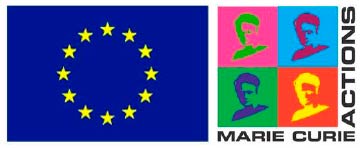ESR 2: Toughening composites by micro and meso structural optimization
- Application deadline: 30/06/2020 17:00 CEST Brussels
- Offer starting date: 01/11/2020
- Researcher profile: First Stage Researcher (R1)
- Type of contract: Temporary
- Job status: Full-time
- Hours per week: 37,5
- Secondments: 6 months ETH Zurich (Switzerland) & 4 months at Bottero Glass Technologies, Cune (Italy)
Contract signing and incorporation dates are indicative and have yet to be defined.
- Recruiting institution: Universidad de Sevilla»
- City, Country: Sevilla, Spain
- Organization type: Higher Education Institute
- Department: Departamento de Mecánica de Medios Continuos y Teoría de Estructuras
- Main supervisor: Dr. Israel G. García
- Research Field:
- Engineering > Materials engineering
- Engineering > Mechanical engineering
Objectives
The aim of this ESR project is to investigate the reduction of the flaw sensitivity of engineering composites by the optimization of their micro and meso structures as well as the geometric definition of their interfaces. The complex microstructures in biomaterials have been known for decades but its replication at an industrial scale was anti-economic with the traditional fabrication procedures.
However, the recent development of new fabrication techniques, with some similarities with the biological procedures, opens new opportunities. One of these fabrication techniques is Additive Layer Manufacturing (ALM) which is applied to an industrial scale.
Thus, the specific objective of this ESR project is the development of new materials and joints with lower flaw sensitivity inspired by biological materials and compatible with the new fabrication techniques. The microstructural design will be addressed by the combination of the observation of biological materials and the development of an optimization strategy based on genetic and related algorithms.
The genetic algorithm will be based on the use of FFM and PF to test flaw sensitivity in order to create a new generation of microstructures.
Benefits
A full-time fixed-term contract is offered. Marie Curie ITNs provide competitive financial support to the ESR including: a competitive monthly living and mobility allowance and salary, coverage of the expenses related to the participation of the ESR in research and training activities (contribution to research-related costs, meetings, conference attendance, training actions, etc.). The recruited researchers will have a regular contract with the same rights and obligations as any other staff member of the institution.
Eligibility criteria
Applicants must at the time of recruitment:
- Be in the first four years (full-time equivalent) of their research careers. The four years start to count from the date when a researcher obtained the degree (e.g. Master’s degree) which would formally entitle him/her to embark on a doctorate.
- Candidates could be of any nationality but have not resided in the host country for more than 12 months in the last 3 years.
- Have not been awarded a doctoral degree.
Selection process
Applicants are evaluated by a selection committee on the basis of past academic performance (grades) and background, scientific relevance and aptitude to research, and any other additional pertinent data submitted in the application (such as scientific publications, if any).
The candidates that pass the initial assessment of the applications will be invited for an interview with the selection committee, either in person at the campus, or via standard internet videoconference. Equal opportunities are ensured to all candidates throughout the evaluation process.
The closing date of the call will be on June 30, after this date, the institution will make a first analysis of the candidates to determine that the candidates meet the requirements proposed by the call. The institution will publish within a maximum period of 15 working days the list of candidates admitted in the selection process. Non-selected candidates can claim objections to the selection process during three next working days after the announcement of the list. Final list of the admitted candidates will be announced within a maximum period of 10 working days.
EURAXESS offer ID: 491033

Requirements
Offer requirements
- Required Education Level: Engineering - Master Degree or equivalent
- Required Languages: English - Excellent
Skills / Qualifications
- Master’s degree in Mechanical/Aeronautical/Civil Engineering/ Physics/ Applied Mathematics, earned before October 31 2020
- Excellent undergraduated and Master’s degree grades
- High level of written and spoken English
- Teamwork ability
Specific Requirements
- Basic knowledge of theoretical, computational and experimental fracture mechanics
- Knowledge of scripting languages (e.g. Python, Julia) would be appretieted
- Basics of electronic protoyping
- Basics of biology
ESR project | Host Institution | Details |
|---|---|---|
IRP/ESR 1: Total energy minimization with stress conditions for mixed mode fracture in anisotropic heterogeneous materials and structures | Universidad de Sevilla (Spain) | |
IRP/ESR 2: Toughening composites by micro and meso structural optimization | Universidad de Sevilla (Spain) | |
IRP/ESR 3: Fracture analysis of advanced layered ceramics | Sorbonne Université (France) | |
IRP/ESR 4: Fracture of LFRP ultra-thin ply laminates in aeronautical applications | Universidade do Porto (Portugal) | |
IRP/ESR 5: Nucleation and propagation of compressive cracks | Sorbonne Université (France) | |
IRP/ESR 6: Multiscale modeling of fracture processes in injection molded SFRPs | Robert Bosch GmbH (Germany) | |
IRP/ESR 7: Debonding of the reinforcement in LFRP externally strengthened curved beams | Politecnico di Torino (Italy) | |
IRP/ESR 8: Fracture in biological anisotropic hard tissues (human bones) | Tel-Aviv University (Israel) | |
IRP/ESR 9: Multi-field and multi-scale modeling of fracture for renewable energy applications | IMT School for Advanced Studies Lucca (Italy) | |
IRP/ESR 10: PF modeling of fracture in the human femur | Eidgenoessische Technische Hochschule Zürich (Switzerland) | |
IRP/ESR 11: Analysis of the failure mechanisms associated to the unfolding failure in CFRP profiles | Fundación Investigación, Desarrollo y Aplicación de Materiales Compuestos (Spain) | |
IRP/ESR 12: Fracture in fibre-reinforced thermoplastics (FRTPs) across the scales | Universidade do Porto (Portugal) | |
IRP/ESR 13: Phase Field and Finite Fracture Mechanics for dynamic crack propagation and delamination in brittle materials and composites | Politecnico di Torino (Italy) |

